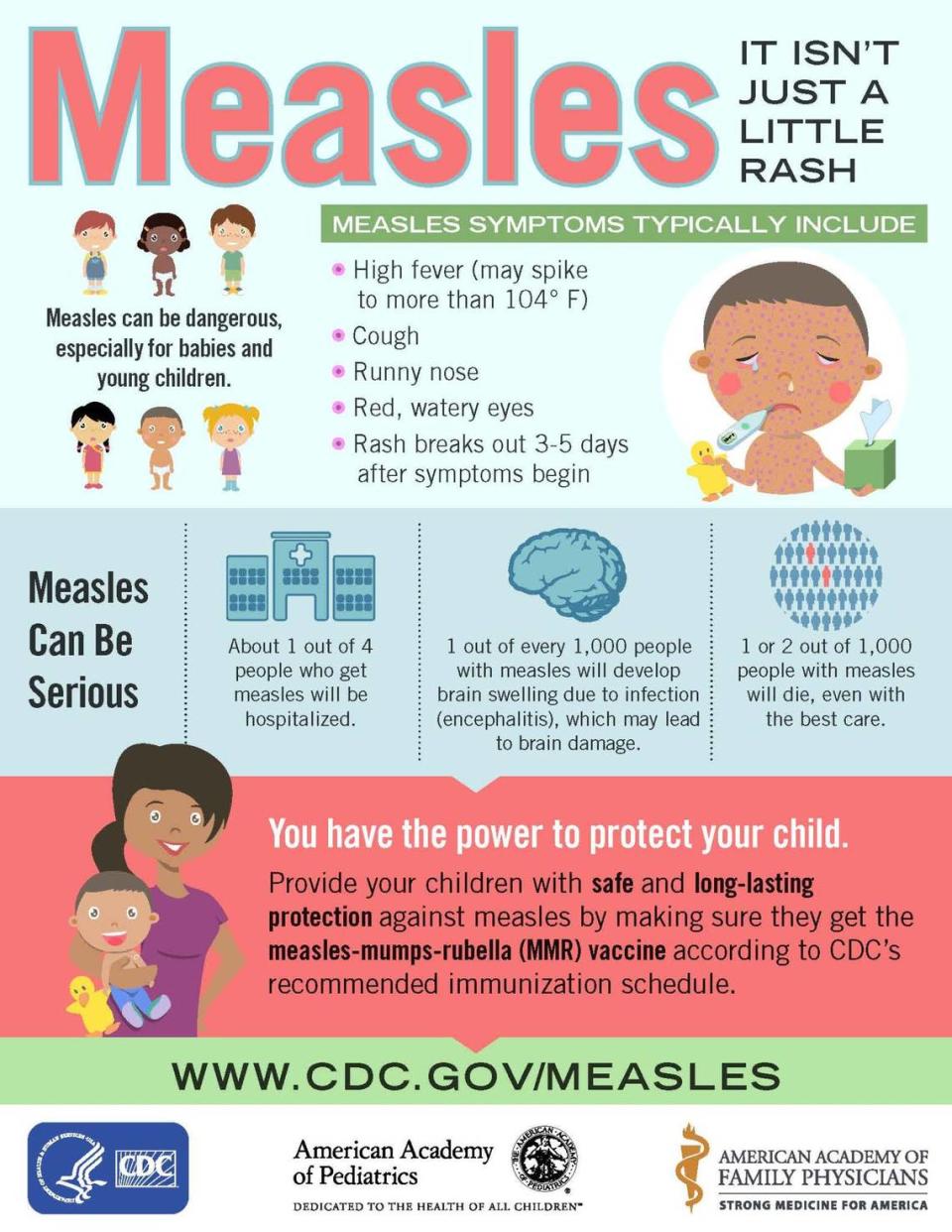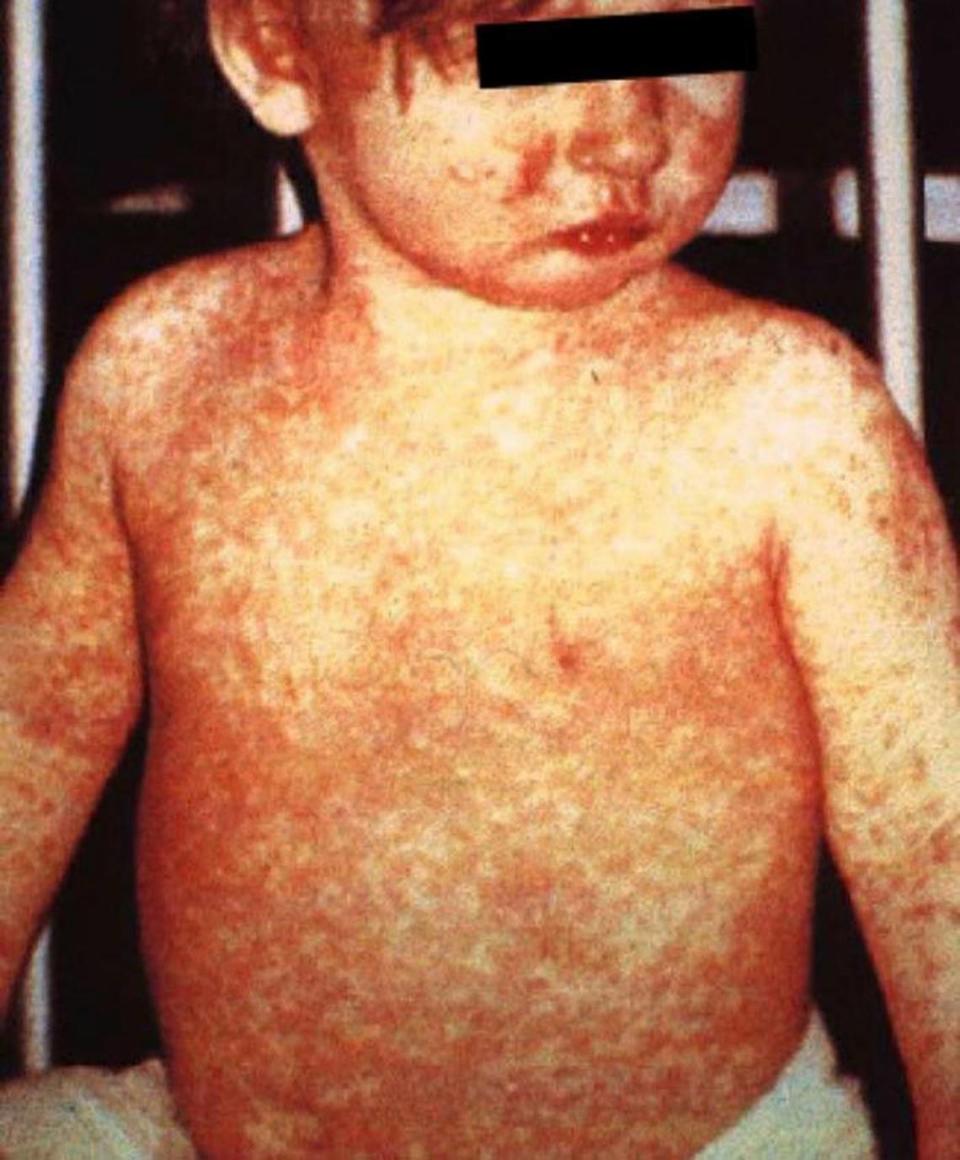Measles cases on the rise around the world, in the US. Duke & UNC doctors on staying safe
Measles outbreaks around the world, including in the U.S., have health officials urging parents to get their children vaccinated against the virus — and coaching doctors and nurses to recognize the infection to hasten treatment and arrest spread.
Measles highly contagious, hard to recognize
Because robust vaccination programs technically eliminated measles in the U.S. by 2000, many people have never seen a case, said Dr. David J. Weber, medical director at the Department of Infection Prevention and associate chief medical officer at UNC Medical Center.
“It can be hard to recognize a disease you haven’t seen, so it wouldn’t surprise me if some people don’t realize right away they’re looking at a case of measles,” Weber said.
Between Dec. 1, 2023 and Jan. 23, 2024, the U.S. Centers for Disease Control says it has been notified of 23 confirmed cases of measles across the country. The agency said seven of those were “direct importations” by international travelers, meaning those patients picked up the virus outside the U.S. and came back with it. It also includes two outbreaks of more than five cases each, the CDC said, and most of those were unvaccinated children or adolescents.
Weber said measles is one of the most highly contagious viruses known, three to four times more contagious than SARS, which resulted in a global epidemic in 2003-2004. Where a person with SARS might infect two to four other people, Weber said, a person with measles will infect 15 to 18.
If a person with measles presents at a hospital emergency department, Weber said, two hours after they leave, it’s still possible for someone who enters the room to get measles.

How serious are measles cases?
Measles is airborne, and the illness can lead to severe complications, and one to three people in 1,000 who get the measles die. Complications can include:
ear infections
diarrhea
pneumonia and other respiratory infections
encephalitis (inflammation of the brain), which can cause brain damage
Weber, who remembers treating measles patients, said, “We don’t want to go back to that.”
Before a vaccine was developed, the CDC says measles was nearly a rite of passage for children, with more than 90% getting the virus by age 15.
It’s still common – and often fatal – in developing countries; the World Health Organization estimates there were 128,000 deaths from measles around the globe in 2021, mostly among unvaccinated children under age 5.
In the U.S., the most recent significant outbreaks were in 2014 and 2019.
Recently, health officials in Philadelphia have confirmed an outbreak of 9 cases there and here have been cases in Washington and other places.

What are the symptoms of measles?
While it’s most known for the rash that first appears on the face and neck and then spreads to the rest of the body, measles actually starts with a fever that lasts for a couple of days. That’s followed a cough, a runny nose and conjunctivitis, or pink eye.
The rash doesn’t show up until several days into an infection, but the patient is infectious four days before the rash appears, and for four days after.
The incubation period for the virus is about 11 days from the time of exposure, the CDC says.
Measles vaccine is 99% effective, required for school
The best way to prevent measles, health officials say, is with a vaccine. In the U.S. that’s typically through one that combines the measles vaccine with ones that also protect against mumps and rubella.
Dr. Michael Smith, a pediatric infectious disease specialist at Duke University, said the two-shot vaccine is safe and 99% effective against the measles., even for people who were vaccinated half a century ago.
“If you’re vaccinated, you’re protected,” Smith said. “This is a disease that picks out unvaccinated children.”
All states require children get vaccinated unless they have:
a medical reason
a strong religious or personal objection
Because of how infectious the measles virus is, epidemiologists say a 95% vaccination rate is the target for community protection.
That vaccination rate protects those who aren’t able to get the vaccine because of immune disorders or other medical issues such as ongoing cancer treatment.
Preschools, after-school programs, public and private schools and universities all check immunization records before admitting students.
How to get a measles vaccination
Childhood vaccinations are considered an entitlement in the U.S., and those who can’t afford the shots or don’t have insurance can arrange immunization through their county health departments. You can find phone numbers and links to all of North Carolina’s county health departments at ncdhhs.gov/LHD.
How a French family found their ancestor’s painting at UNC 80 years after Nazis sold it
It’s been almost 2 years since it snowed in Raleigh. Could it still happen this winter?

